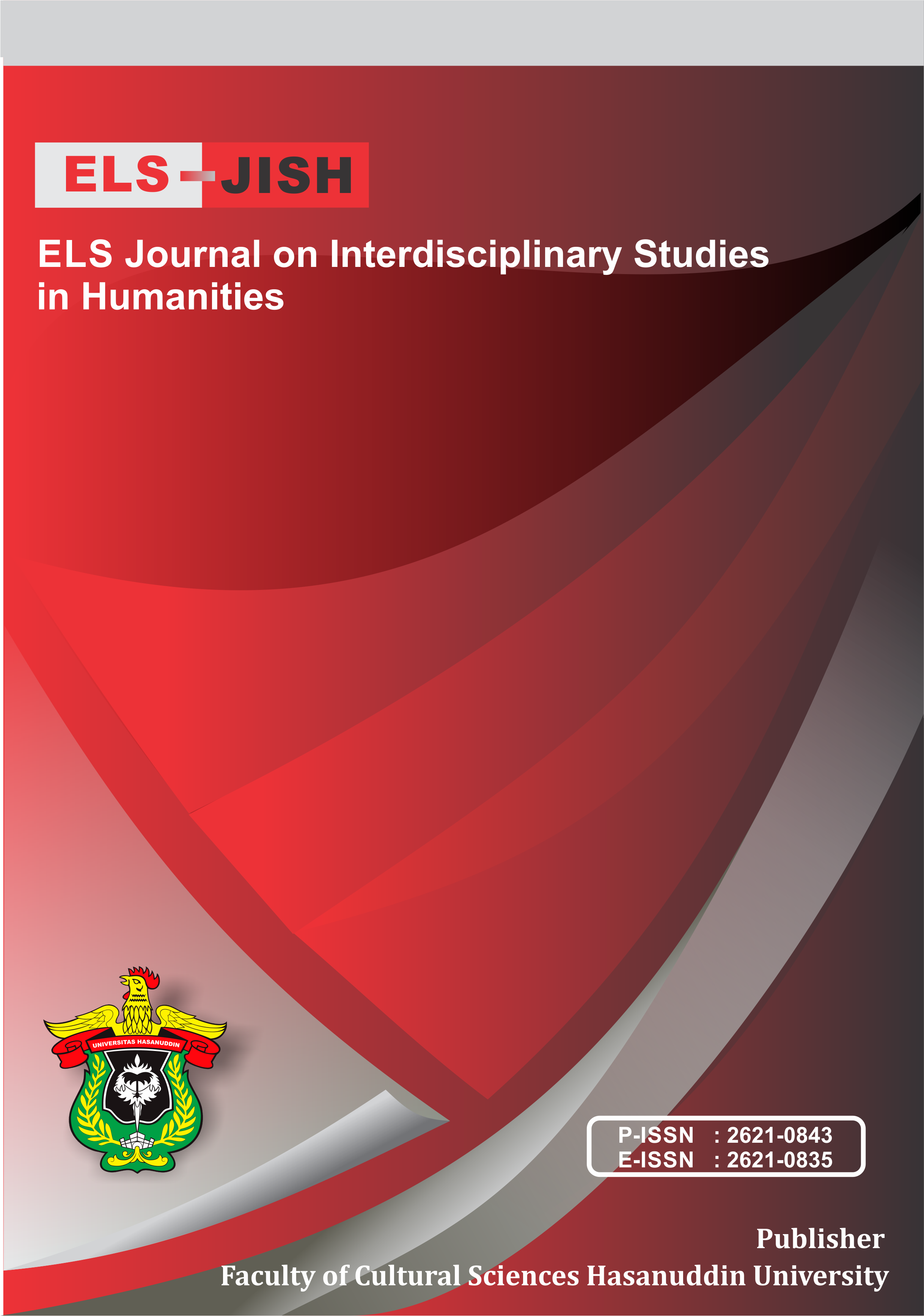The Effect of Makassar-Bugis Myths and Traditions in the Application of English Teaching Strategies in Some Universities in South Sulawesi
DOI:
https://doi.org/10.34050/elsjish.v4i2.14248Keywords:
English Teaching Strategis, Makassar Bugis Myths, South Sulawesi, TraditionsAbstract
Developing human resource and its institution on the basis of indigenous knowledge and wisdom is the theme where this study is embedded. It is a scientific contribution to the development of tertiary education system in which English is offered in all levels and in all scientific areas. This research is based on the fact that English as a foreign language is considered important even though it does not attract many people's interests due to many different factors. The most dominant factors are certainly both teachers and learners of the English as a foreign language (EFL) themselves. This study investigates the effect of myth and tradition of Bugis-Makassar on the teaching strategies of the EFL teachers and the learning strategies of the EFL learners in several universities in South Sulawesi Province. It aims to comprehend the impact of the local culture on the learning process applied by teachers and students. Based on both qualitative and quantitative methods, it is found that three significant categories are underlying the culture - “faith”, “norm”, and “value” inherent in local myth and tradition of Bugis-Makassar value on the preference strategies in foreign language learning. The statistical measurement shows that “value” is the most influential aspect among the others. In addition, the three other categories; ‘Knowledge’, ‘Skill’, and ‘Action’ are of affecting methods from local myth and tradition. Deep understanding on the influence of both myth and tradition, as part of culture society towards students’ learning strategies as well as teachers’ strategies, would be meaningful inputs for adjusting the designed and adapted materials in achieving the objective goals of learning
References
Budhi, GNS., Rahman, F., & Sukmawaty. (2021). The Possible Problem of Similar Callsign in Verbal Air-Ground Communication. International Journal of Innovative Science and Research Technology (IJISRT) vol. 6 issue 1.
Charles, C. M. & Mertler, Craig. A. 2002. Introduction to Educational Research, 4th Edition. Pearson Press.
Hammersley, M. 1981. Using qualitative methods, Social Science Information Studies, Vol. 1, Issue 4, 1981, p. 209-220 (https://doi.org/10.1016/0143-6236(81)90012-0).
Karli and Yuliariatiningsih. (2002). Kelebihan dan kelamahan model pembelajaran kooperatif in http://www.artikelbagus.com/2011/06/kelebihan dan kelemahan model pembelajaran kooperatif.html) (accessed on 15 June, 2021)
Makmun, A.S. 2003. Psikologi Pendidikan. Bandung: PT. Rosda Karya Remaja.
Mansyur, F. A., & Said, R. (2020, May). A Cognitive Semantics Analysis of Wolio Proverbs Related to the Human Body. In 1st Borobudur International Symposium on Humanities, Economics and Social Sciences (BIS-HESS 2019) (pp. 259-262). Atlantis Press.
Pelras, C.. (2006). The Bugis. Jakarta: Nalar.
Rahman, F., Akhmar, A. M., & Amir, M. (2019). The Practice of Local Wisdom of Kajang People to Save Forests and Biodiversity: A Cultural-Based Analysis. In IOP Conference Series: Earth and Environmental Science (Vol. 270, No. 1, p. 012038). IOP Publishing.
Said, M. M., et al. (2021). English Language Performance Development through Extracurricular Activities at Faculty of Teacher Training and Education Tadulako University Palu. PalArch's Journal of Archaeology of Egypt/Egyptology, 18(08), 388-403.
Sanjaya, W. (2008). Strategi Pembelajaran Berorientasi Standar Proses Pendidikan. Jakarta: Kencana.
Schaefer, R.T. (2012). “Sociology: A Brief Introduction, Schaefer. DePaul University Press.
Tahir, D., Rahman, F., & Rahman, A. (2018). The Study of Buginese Reciprocal Verb in the Boegineesche Chrestomathies Manuscript. Am. J. Humanit. Soc. Sci. Res, 2(08), 48-54.
Weda, S., et al. (2021). Linguistic aspects in intercultural communication (IC) practices at a higher education institution in Indonesia. Eroupean Language Scientific Journal Vo. 14 (2-6), p. 76-91
Wolpert-Gawron, H. (2012). Kids Speak Out on Student Engagement. Edutopia. Retrieved from https://www.edutopia.org/blog/student-engagement-stories-heather-wolpert-gawron
Downloads
Published
Issue
Section
License
Copyright (c) 2021 Sukmawaty, Nasmilah, Nadirah Mahaseng, Marleiny Radjuni

This work is licensed under a Creative Commons Attribution-NonCommercial-ShareAlike 4.0 International License.






